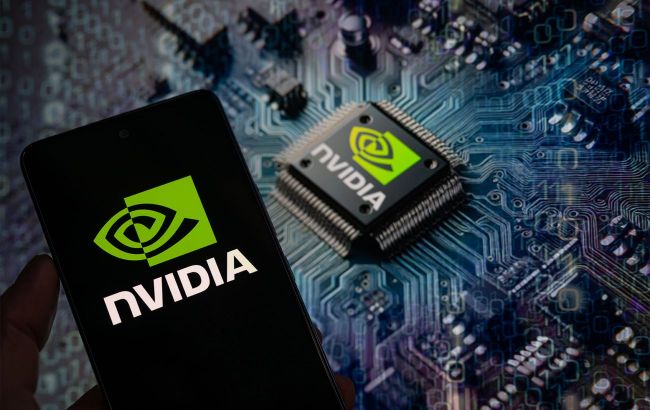Nvidia and AMD face new 15% US tax on sales in China in controversial deal
 The US government will profit from Nvidia and AMD AI chips in China (photo: Getty Images)
The US government will profit from Nvidia and AMD AI chips in China (photo: Getty Images)
Nvidia and AMD have signed an unusual agreement with the administration of President Donald Trump, agreeing to give the US government 15% of the revenue from sales of certain chips in China. This was a condition for obtaining export licenses for the Chinese market, according to the Financial Times.
Unprecedented agreement terms
According to the agency's sources, Nvidia has agreed to share 15% of its revenue from sales of H20 chips in China, while AMD will provide the same percentage of revenue from MI308 chips.
However, Donald Trump's administration has not yet determined how it will use the funds received.
Interestingly, no American company has ever agreed to pay part of its revenue to obtain export licenses.
Financial Times says that this approach was in line with Trump’s policy, which often encouraged companies to take certain steps, such as domestic investment, to benefit America
According to Bernstein analysts, Nvidia alone could sell China about 1.5 million H20 chips in 2025, which would bring in about $23 billion in revenue.
At the same time, the company did not deny the existence of the agreement, stating that Nvidia adheres to the rules that the US government sets for participation in global markets.
AMD ignored journalists' requests for comment.
Chronology of events and Trump's role
This deal was preceded by a controversial history. After the Biden administration imposed strict export restrictions on advanced chips for artificial intelligence, Nvidia developed a special, less powerful version of the H20 chip for the Chinese market.
In April 2025, the Trump administration announced that it would ban the export of these chips as well.
However, after a meeting between the president and Nvidia CEO Jensen Huang, Trump changed his decision.
Financial Times writes that when the licenses were not issued, Huang had appealed to Trump again the previous Wednesday, and by Friday, the US Department of Commerce had begun issuing permits.
Criticism from national security experts
The decision to sell chips to China, even in exchange for a portion of the revenue, has sparked outrage. National security experts argue that the H20 chip will still help the Chinese military and undermine the US's advantage in AI.
Liza Tobin, an expert who served on the National Security Council during Trump’s first term, said that Beijing was probably gloating as it watched Washington turn export licenses into a source of revenue, and asked what might be next — allowing Lockheed Martin to sell F-35s to China for a 15% commission.
Some officials from the Bureau of Industry and Security (BIS), which is responsible for export control, also expressed concern.
Former Deputy National Security Advisor Matt Pottinger and 19 of his colleagues wrote a letter to US Secretary of Commerce Howard Lutnick, urging him not to grant a license for H20, calling the chip a powerful accelerator of China's advanced AI capabilities.
In response, Nvidia said the claims were false and rejected the idea that China could use H20 for military purposes, stressing the need for the US to compete in the Chinese market so as not to lose its leadership, as happened with 5G.
Nvidia is the most valuable public company in the world. It is at the center of the technological rivalry between the US and China, as its AI chips are key to the supercomputers of both countries.
Donald Trump has lifted tariffs on smartphones and computers.
The White House chief also firmly believes that iPhone production can be moved to the US.

